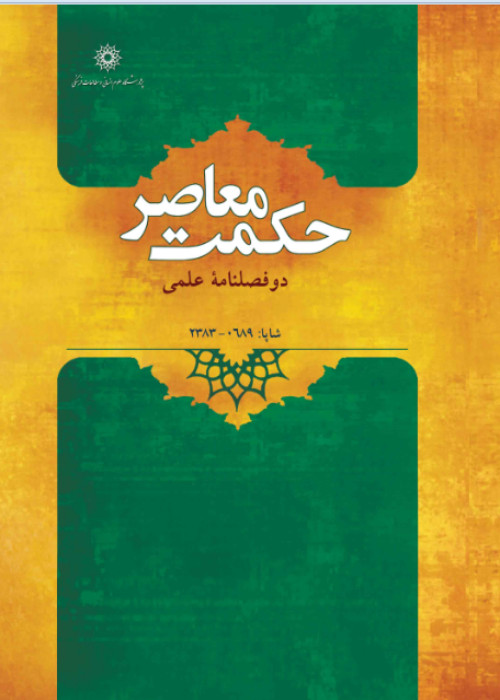A Study of the Distribution of Human Provision (Rizq)According to Avicenna’s Philosophy, Particularly the “Essay on Provisions”
God as the creator and lord of humans, and as All-Provider (razzāq), is in charge of providing for human primary basic needs, as in the Qur’an God promises to make basic provisions for everyone. The promise led some people to think that humans have a right to receive provisions from God, expecting that God should optimally and fully provide for human needs. For this reason, the difference in people’s provisions has led to questions concerning divine justice.The problem with which this paper is concerned is why God has allotted different amounts of provisions to different people, instead of giving different people equal shares of provisions. Moreover, if allotment of provisions is attributed to God, why is it emphasized that people try hard to gain provisions?These questions have frequently been raised in religious milieus throughout the history, often with the intention of casting doubts on religious beliefs by questioning divine justice, since different provisions for different people are thought to be at odds with God’s justice.A number of papers in the field of Quranic sciences have been written about this problem, which are based on the views of Quranic exegetes, on which we draw in this paper. The contribution of this paper is that it offers a philosophical consideration of the problem in terms of Avicenna’s philosophy, particularly his essay on provisions (Risāla fi-l-arzāq). It is noteworthy that the problem was not tackled by any other Muslim philosophers. In Islamic philosophy, God’s attribute of All-Provider is mentioned in passing as an attribute of action—it is at most defined and reduced to divine attributes of essence such as knowledge, wisdom, and power. Avicenna deals with the problem of provisions in his Risāla fi-l-arzāq. This is an essay attributed to Avicenna. Over 20 manuscripts of the essay are available in libraries, and its attribution to Avicenna has not been a matter of dispute.The essay is concerned with questions about divine justice and how to treat people’s differences in their provisions in these terms. Avicenna explicitly deals with the problem in terms of a debate. In line with his Peripatetic framework, he considers different aspects and possible results of the question, as illustrated with numerous examples. In this paper, I provide an account of Avicenna’s remarks here given his general theoretical framework as explicated in other works of his. I also offer criticisms of his account. Taking account of the views of Quranic exegetes concerning the problem, I offer my own account of the problem.
In order to reconcile two groups of Quranic verses in one of which the allotment of provisions is attributed to God and in the other the attainment of provisions is conditioned upon the human labor and efforts, one might offer the following account: in a monotheistic view, provisions are ultimately allotted and distributed by God, but this is in terms of unchanging traditions in accordance to the divine wisdom. In the best or optimal order and the dynamics of the universe, human wills and the amount and quality of their labors and efforts play roles in the expansion or diminution of one’s provisions. For obtaining a desirable provision, a set of conditions should be satisfied and certain grounds should be prepared.Given one’s material and spiritual possessions, which are in turn from God, every person tries to obtain provisions by drawing upon one’s insight, intelligence, as well as spiritual and material capitals. The better one performs in utilizing one’s opportunities the more provisions one attains, and the more negligent and indolent one is in using one’s existential and material capacities and the more vulnerable one makes oneself to unpredictable economic circumstances the more deprived one will be and the more futile one’s efforts will turn out to be, in which case one will have a diminished provision. In this way, God the Wise has established laws and traditions in the creation in such a way that everyone can attain his or her own share of provisions with their mental and physical capacities, without there being any injustice.In his “Essay on provisions” Avicenna has dealt with the problem of the difference in people’s provisions and its bearing upon the divine justice. In this essay, he tries to rely on divine wisdom and grace to correct wrong conceptions and establish divine justice in the measurement of people’s provisions. Through an articulation of the contradictions involved in different aspects of the problem, Avicenna shows that the idea of exactly equal provisions leads to an impossibility or the human destruction.
- حق عضویت دریافتی صرف حمایت از نشریات عضو و نگهداری، تکمیل و توسعه مگیران میشود.
- پرداخت حق اشتراک و دانلود مقالات اجازه بازنشر آن در سایر رسانههای چاپی و دیجیتال را به کاربر نمیدهد.



